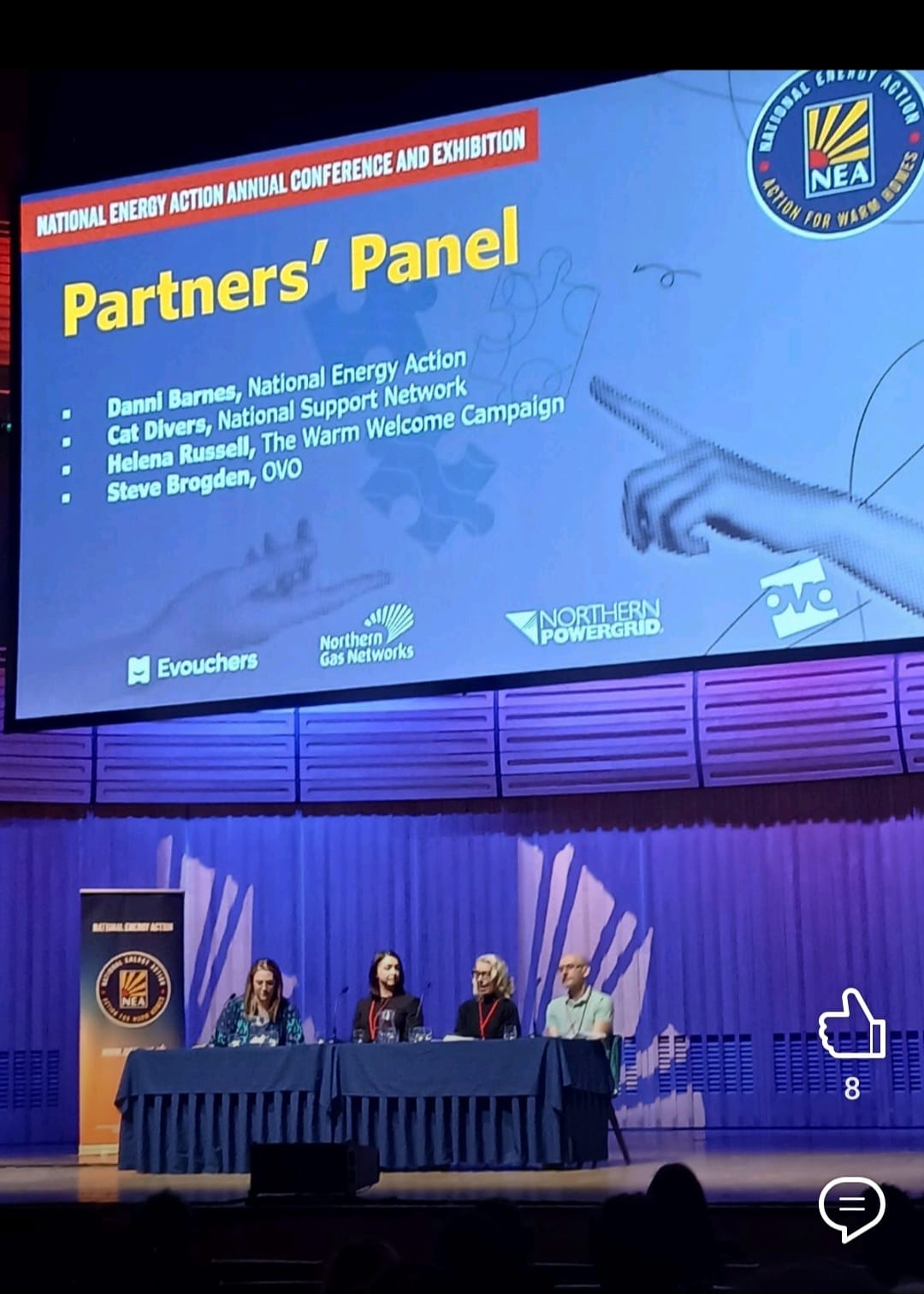.svg)
The following blog piece is a reflection by Warm Welcome Campaign partner, Libraries Connected. It outlines findings about libraries that offered Warm Welcome spaces this winter, as brought to light by the webinar ‘Warm Spaces: What Next?’.
Libraries have played a vital role this past winter in providing warmth and support for those affected by the ongoing cost-of-living crisis.
Whilst libraries function all year round as public spaces in which people can shelter from extreme cold or heat, the financial pressures experienced by so many in 2022 – particularly related to rising fuel prices – meant that this role was cast into the spotlight on a national level.
Our briefing note on the cost-of-living crisis, published in September 2022, suggested that most public library leaders were actively looking at taking part in a ‘Warm Bank’ scheme. We were also aware in the summer of 2022 that many libraries were preparing for an increase in people visiting for warmth by installing extra desks and comfier chairs. We know that library services followed through on these plans with alacrity.
All 47 of Norfolk’s council-run libraries were turned into ‘warm spaces’, giving those struggling to heat their homes the chance to sit in comfort with free hot drinks or soup. Norfolk, like many other services, joined the ‘Warm Welcome’ campaign. Libraries could use this website to register their location as a warm space.
On Thursday 23 March we held a webinar, ‘Warm Spaces: What Next?’ with three guest speakers. We were joined by Sam Marshall, Operations Manager at Hampshire Public Libraries, David Barclay, Manager of the Warm Welcome Campaign and Ravneet Virdi, Head of Tackling Loneliness, Department for Culture, Media and Sport. This was a timely and important opportunity not only to reflect on libraries’ experiences of running ‘warm spaces’ during the winter of 2022-23, but to look at how those projects might help inform future schemes within the library sector.
Sam told us about Hampshire’s early preparatory activities. In October 2022, the service distributed 800 ‘warm bags’, 3000 food vouchers and held coat exchanges for those most in need. Alongside these emergency activities that came out of the cost-of-living crisis, Hampshire made sure to publicise their ‘business as usual’ offer. Much of the service’s existing offer, including signposting to services such as foodbanks, is helpful to those in need of assistance. However, the service also went far beyond its usual offer in working with partners to develop community pantries and fridges in four of its libraries.
On Hayling Island, the library now works with the pantry to provide an after-school club for children ensuring they have access to a snack and a drink in a warm safe space. Sam told us that Hampshire’s ’Warm Welcome’ campaign has led to a significant increase in the use of these pantries in the latter half of the year.
Sam pointed out that a specific challenge arising from Hampshire’s campaign is how to ensure that those who come to the library for support remain in the building to take advantage of the many benefits libraries offer. Whilst the food vouchers proved very popular, many recipients picked them up and left the library almost immediately.
Convincing customers to stay for longer will be a focus of Hampshire’s campaign this coming winter.
David’s talk was particularly valuable for highlighting the coordination that has occurred because of the establishment of the ‘Warm Spaces’ network. He explained that libraries, churches and community groups have fostered new connections as part of the campaign. David explained that these local networks can form new and surprising partnerships with local charities and businesses. In Carlisle, for example, an animal charity offered free pet food to those using warm spaces in the city.
David explained that the challenge for the future will be creating a warm space infrastructure that can support local organisations, building on the work achieved so far. Ideally, David said he sees warm spaces in the future as part of the social fabric of the UK. He suggested a future in which visiting warm spaces during the winter is not an economic but a social necessity and normality. However, David stressed that extra resources must be made available if this idea is to become a reality.
In the final part of our webinar, Ravneet provided valuable lessons for the development of warm spaces drawn from DCMS’s work on loneliness. To encourage social connections, warm spaces might focus on shared, group activities. As Ravneet noted, libraries are ideally positioned because they already provide these activities on a daily basis. As a significant contributing factor to loneliness is living alone, she suggested exploring community transport schemes to bring people into warm spaces like the library.
It was clear from Ravneet’s talk that the future of warm spaces lies in connecting them not just to physical services like these transport schemes but to schemes such as social prescribing. Given their multivarious links within the local community, libraries are ideally placed to fulfil these roles and function as central pillars in the next phase of the warm spaces project.
Want more updates about the Warm Welcome campaign?
Stay up to date with our latest news:




.png)